第41章 XII. POLITICS AND WARFARE.(4)
This naive assumption of supreme value in a process never of the first importance; and increasingly injurious as society progresses, would be laughable if it were not for its evil effects. It acts and reacts upon us to our hurt. Positively, we see the ill effects already touched on; the evils not only of active war; but of the spirit and methods of war; idealized, inculcated and practiced in other social processes. It tends to make each man-managed nation an actual or potential fighting organization, and to give us, instead of civilized peace, that "balance of power" which is like the counted time in the prize ring--only a rest between combats.
It leaves the weaker nations to be "conquered" and "annexed" just as they used to be; with tariffs instead of tribute. It forces upon each the burden of armament; upon many the dreaded conscription; and continually lowers the world's resources in money and in life.
Similarly in politics, it adds to the legitimate expenses of governing the illegitimate expenses of fighting; and must needs have a "spoils system" by which to pay its mercenaries.
In carrying out the public policies the wheels of state are continually clogged by the "opposition;" always an opposition on one side or the other; and this slow wiggling uneven progress, through shorn victories and haggling concessions, is held to be the proper and only political method.
"Women do not understand politics," we are told; "Women do not care for politics;" "Women are unfitted for politics."
It is frankly inconceivable, from the androcentric view-point, that nations can live in peace together, and be friendly and serviceable as persons are. It is inconceivable also, that in the management of a nation, honesty, efficiency, wisdom, experience and love could work out good results without any element of combat.
The "ultimate resort" is still to arms. "The will of the majority" is only respected on account of the guns o?the majority. We have but a partial civilization, heavily modified to sex--the male sex.
WOMAN AND THE STATE
[A Discussion of Political Equality of Men and Women. To be read in connection with chapter 12 of Our Androcentric Culture.]
Here are two vital factors in human life; one a prime essential to our existence; the other a prime essential to our progress.
Both of them we idealize in certain lines, and exploit in others. Both of them are misinterpreted, balked of their full usefulness, and humanity thus injured.
The human race does not get the benefit of the full powers of women, nor of the full powers of the state.
In all civilized races to-day there is a wide and growing sense of discontent among women; a criticism of their assigned limitations, and a demand for larger freedom and opportunity. Under different conditions the demand varies; it is here for higher education, there for justice before the law; here for economic independence, and there for political equality.
This last is at present the most prominent Issue of "the woman question" in England and America, as the activity of the "militant suffragists" has forced it upon the attention of the world.
Thoughtful people in general are now studying this point more seriously than ever before, genuinely anxious to adopt the right side, and there is an alarmed uprising of sincere objection to the political equality of women.
Wasting no time on ignorance, prejudice, or the resistance of special interests, let us fairly face the honest opposition, and do it justice.
The conservative position is this:
Men and women have different spheres in life. To men belong the creation and management of the state, and the financial maintenance of the home and family:
"To women belong the physical burden of maternity, and the industrial management of the home and family; these duties require all their time and strength:
"The prosperity of the state may be sufficiently conserved by men alone; the prosperity of the family requires the personal presence and services of the mother in the home: if women assume the cares of the state, the home and family will suffer:
Some go even farther than this, and claim an essential limitation in "the female mind" which prevents it from grasping large political interests; holding, therefore, that if women took part in state affairs it would be to the detriment of the community:
Others advance a theory that "society," in the special sense, is the true sphere of larger service for women, and that those of them not exclusively confined to "home duties" may find full occupation in "social duties," including the time honored fields of "religion" and "charity":
Others again place their main reliance on the statement that, as to the suffrage, "women do not want it."
Let us consider these points in inverse order, beginning with the last one.
We will admit that at present the majority of women are not consciously desirous of any extension of their political rights and privileges, but deny that this indifference is any evidence against the desirability of such extension.
It has long been accepted that the position of women is an index of civilization. Progressive people are proud of the freedom and honor given their women, and our nation honestly believes itself the leader in this line. "American women are the freest in the world!" we say; and boast of it.
Since the agitation for women's rights began, many concessions have been made to further improve their condition. Men, seeing the justice of certain demands, have granted in many states such privileges as admission to schools, colleges, universities, and special instruction for professions; followed by admission to the bar, the pulpit, and the practice of medicine. Married women, in many states, have now a right to their own earnings; and in a few, mothers have an equal right in the guardianship of their children.